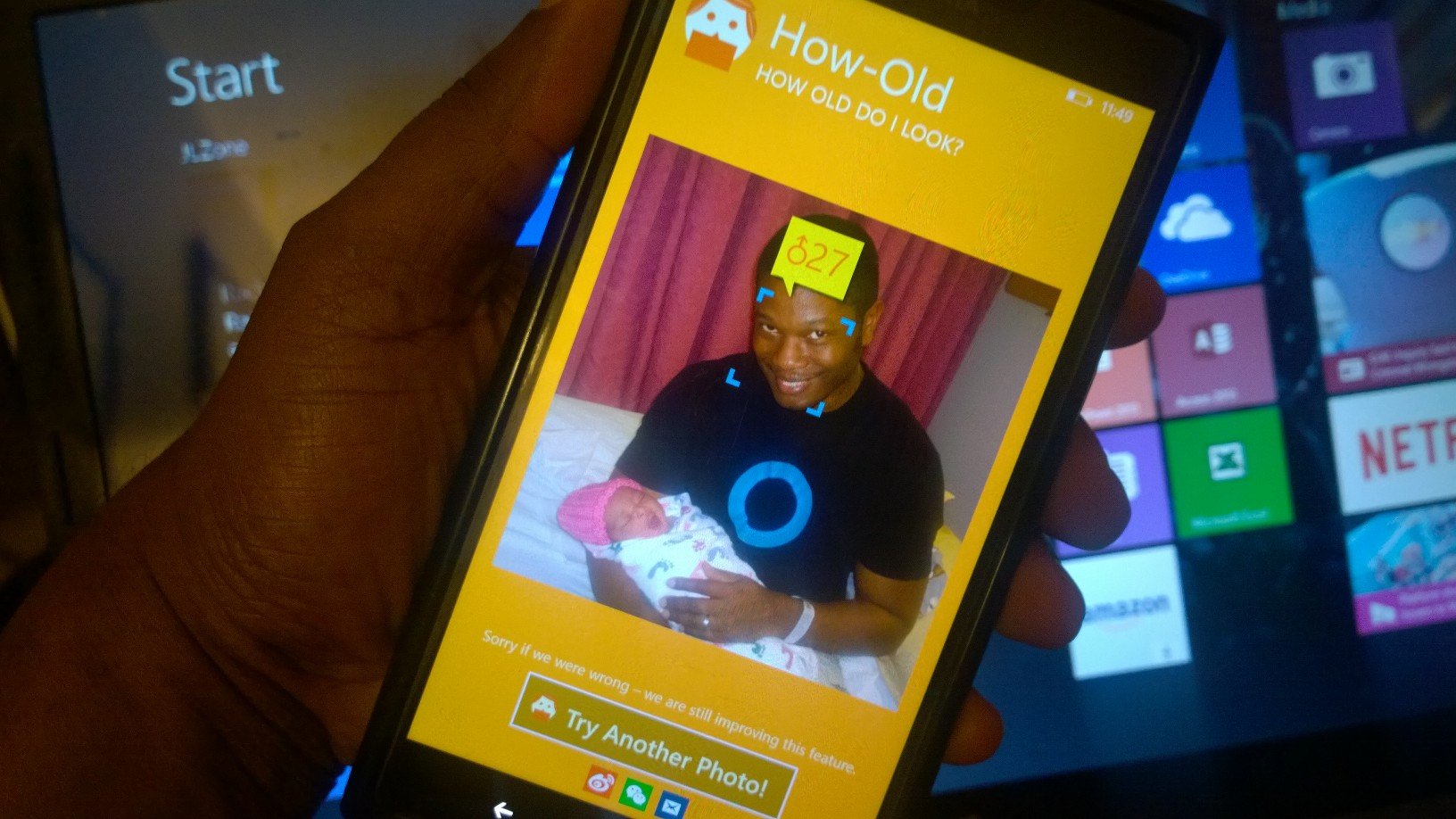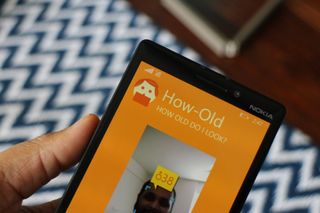Things that make you go hmmm: Microsoft How-Old; Could facial recognition tech turn ugly?
Famous late night talk show host and comedian Arsenio Hall popularized a phrase, "Things that make you go hmmm?" during his shows run from 1989-1994. He would stand before his audience and state the phrase with his finger pointed to his temple invoking a thoughtful appearance.

As many of you know I normally write long form analytical editorial pieces. Don't worry I will continue to do so. I'm working toward completing the "Highs and Lows: Microsoft's Smartphone Strategy" series as you're reading this.
Now and then however, interspersed between those more in-depth pieces, I will engage you with these shorter pieces that look at a particular aspect of the Microsoft ecosystem in brief. Technology, particularly new implementations of technology, has introduced just as many questions as proponents of the technology claim it answers. These pieces will focus on, as Arsenio would say, things that make you go, "hmmm?"
On the Face of Things
I downloaded the "Microsoft How-Old" Windows Phone app today. As my colleague Harish aptly described in his excellent piece earlier, the app utilizes Microsoft's facial recognition software to guess a person's age. The software also takes a stab at figuring out your gender. It can be a fun distraction and a bit flattering as well. The app consistently pegs me as younger than my actual age. As a matter of fact, it labeled me 15 years younger than my nearly 42 years based on a picture I took last week with my newborn daughter. Flattery will get you nowhere Microsoft.

Facing Facts
In all seriousness though, this is a pretty cool app with tremendous potential. Looking a little deeper than it's "carnival trick'" veneer, I surmise the goal of this app has less to do with a user's enjoyment and is more a tool deployed by Microsoft to collect data. I believe the "How-Old" app and website are designed to help Microsoft accrue data that will assist them in perfecting the facial recognition technology the company purposes to implement in its desktop and mobile Windows 10 devices.
Of course, the app and web service are also positioned to generate awareness of the technology before it débuts in a more purposed and refined form. The service is fun and engaging. People will use it. It's the type of app that you check out on your own as well as a social app that you use when among friends and family. The more who use the app, the more they engage the system and the more data and feedback Microsoft culls to improve the service. As an added benefit for Microsoft, the website saw far more activity than the company expected. How they could underestimate the potential of a site totally focused on 'self' in this 'me' generation is beyond me. Anyway...
Though the app in its current state offers some fun and amusement, its practicality from a user's perspective is, at least for now, limited. But, as a tool that Microsoft is likely subtly using to hone its facial recognition technology for future practical and I imagine, ambitious implementations, this release is a great strategy. Users, if interested, could help the cause by downloading and using the app today. That is, of course if you're not concerned about the many "not so cool" ways facial recognition technology can eventually be used if widely implemented throughout society.
Think about it. Microsoft is a cloud first and mobile first company with ambitions to embed Windows 10 in as many IoT device's of various shapes and sizes as possible. Their goal is also to reach an installed base of 1 billion Windows 10 computers within 2-3 years after the new operating systems release. Finally their cross-platform strategy and new found openness reveal the companies desire to thoroughly saturate every platform with its products and services. And now they've designed and launched intelligent software that can recognize you. Hmmm.
Get the Windows Central Newsletter
All the latest news, reviews, and guides for Windows and Xbox diehards.
All Up in Your Face
Imagine cameras, which already have a virtually ubiquitous presence in our communities, possessing intelligent software that will allow them to potentially recognize you everywhere you go. ATMs, stores, parks, traffic lights, police officer body and vehicle cams. Not worried yet? What about the snooping cameras on other people's mobile devices! Yes, the list goes on. Privacy beware!
Let's take it a bit further. I can also envision that this technology will eventually find its way into Cortana. Thus allowing Microsoft's evolving digital assistant to recognize random people anytime and anywhere. Remember Project Adam?
That project has already delved into using deep learning to allow for a machine to recognize a plethora of diverse images. "Hey Cortana, who is that?" accompanied with a slick tilt of the camera in the direction of your target may sound like science fiction today, but so did an ever present interactive digital assistant ten years ago. With over 1.4 billion users on Facebook as tagged and ready resources, and Cortana, the AI incarnation of Microsoft's Bing search engine, her access to 1/7 of the faces of the world's population via that source alone is just a search away. Hmmm.
Finally, envision the profound applications of this technology if third party developers wrapped their boundless imaginations and creative coding around the "How-Old" facial recognition API's. Imagine the possibilities... or something else. Hmmmmm.
Facing the End (Of the piece... what did you think I meant?)
Oh well. I have the app on my Lumia 1520 and it tells me I'm 27 rather than almost 42. So even if we're headed toward an Orwellian future, I do anticipate using the app again. Maybe among family and friends or possibly during one of those inevitable moments when I'm feeling a little old. What's a guy to do? I guess flattery has gotten Microsoft somewhere.
Penny for Your Thoughts
Hmmm. So what are you thinking? I'd love to hear your thoughts on the potential pros and cons of this technology. What are the possible ethical, moral and privacy complications this technology presents? What are the potential benefits or problems that it solves? Please chime-in in comments and on Twitter @JLTechWord. We've got a lot to talk about!
Download Microsoft How-Old for Windows Phone (free)

Jason L Ward is a columnist at Windows Central. He provides unique big picture analysis of the complex world of Microsoft. Jason takes the small clues and gives you an insightful big picture perspective through storytelling that you won't find *anywhere* else. Seriously, this dude thinks outside the box. Follow him on Twitter at @JLTechWord. He's doing the "write" thing!
